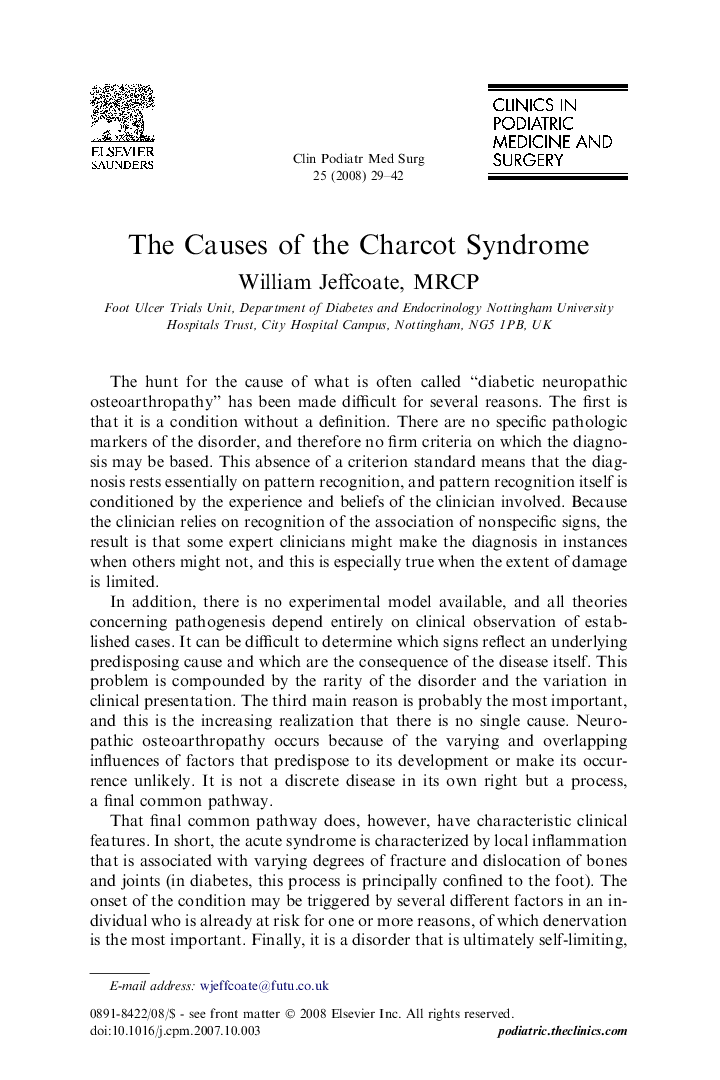| Article ID | Journal | Published Year | Pages | File Type |
|---|---|---|---|---|
| 3462538 | Clinics in Podiatric Medicine and Surgery | 2008 | 14 Pages |
Abstract
The Charcot syndrome is a rare complication of neuropathy in diabetes and is characterized by an acute inflammatory episode of the foot that is associated with variable degrees of dislocation, fracture, and deformity. It has no single cause but represents the final common pathway in people who are predisposed to its development by the varying overlap of several different factors. The association of the active phase of the disease with inflammation, increasing osteopenia, and increasing calcification of the arterial walls strongly suggests, however, the involvement of the receptor activator of nuclear factor-κB ligand (RANKL)/osteoprotegerin (OPG) cytokine pathway, which is closely involved in all three processes. The evidence for increased expression of RANKL and OPG in diabetes and neuropathy as well as its potential significance is reviewed.
Related Topics
Health Sciences
Medicine and Dentistry
Medicine and Dentistry (General)
Authors
William MRCP,
